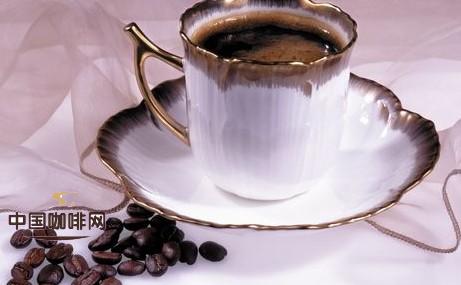What is the nutritional value of fine coffee?

Coffee knowledge introduction:
Coffee is one of the main drinks for westerners. The seeds obtained by removing the pericarp and most of the seed coat after the fruit is ripe are called raw coffee or coffee beans. Raw coffee is roasted and ground to get coffee powder, which can be used to make a drink. Coffee tastes bitter, has a specific flavor, contains caffeine alcohol and 1.3% caffeine alkaloids, and is an anesthetic, diuretic, excitatory and cardiotonic drug. Roasted coffee also has digestive effect and refreshing effect, so many people in our country also like it very much. People who often work overtime and stay up late often use it to refresh themselves; couples often love the warm atmosphere of the coffee shop. It can be said that coffee is also one of the main drinks in our country.
Nutritional analysis of coffee:
Coffee tastes bitter, has a specific flavor, contains caffeine alcohol and 1.3% caffeine alkaloids, and is an anesthetic, diuretic, excitatory and cardiotonic drug. Roasted coffee is also good for digestion.
Coffee contains caffeine, which can stimulate the central nervous system, promote the decomposition of liver glycogen and raise blood sugar. Moderate drinking can make people temporarily energetic and quick-thinking. Drinking after exercise has the effect of eliminating fatigue, restoring physical strength and invigorating spirit.
Coffee supplementary information:
As coffee is good for urine function, drinking more white water can increase micturition and promote kidney function without having to worry about getting angry.
You shouldn't drink too much coffee.
Regular coffee drinkers should pay attention to calcium supplements.
Elderly women often drink coffee will lead to osteoporosis, prone to fracture.
Excessive consumption by pregnant women can lead to fetal malformation or miscarriage.
Drinking too much coffee is dangerous for normal people, but for people who already have cancer, it's better not to drink it.
Coffee is suitable for people:
Ordinary healthy people can drink it.
People with cardiovascular disease, stomach problems, elderly women, pregnant women, vitamin B1 deficiency and cancer should try not to drink coffee.
Coffee practice guidelines:
It should be accompanied by a cup of water when tasting coffee. Drink a mouthful of white water before tasting coffee, flush away the bad smell in your mouth, and then taste coffee before you feel mellow.
Important Notice :
前街咖啡 FrontStreet Coffee has moved to new addredd:
FrontStreet Coffee Address: 315,Donghua East Road,GuangZhou
Tel:020 38364473
- Prev

The five identities of Espresso Coffee
Espresso is Italian, which means to cook it for you immediately. The impulse caused by coffee is beyond words. In the eyes of those who play with coffee, Espresso is no longer a simple espresso, it is a kind of comprehensive coffee, it is a roasting method, it is a kind of coffee brewing method, it is a kind of cooking, and it is also a kind of life identity: comprehensive coffee Espresso is a kind of comprehensive coffee.
- Next

Boutique coffee is recommended to drink Turkish coffee that can be played.
Turks like to drink coffee and chat, just as Sichuan people like to set up a dragon gate in a teahouse. There is a Turkish saying: there are 40 years of friendship in a cup of Turkish coffee. It means to remember his 40-year friendship after drinking a cup of coffee made for himself. Traditional Turkish coffee is brewed cup by cup, and the container is a small copper pot with a long handle with a flat bottom and open bottom.
Related
- Beginners will see the "Coffee pull flower" guide!
- What is the difference between ice blog purified milk and ordinary milk coffee?
- Why is the Philippines the largest producer of crops in Liberia?
- For coffee extraction, should the fine powder be retained?
- How does extracted espresso fill pressed powder? How much strength does it take to press the powder?
- How to make jasmine cold extract coffee? Is the jasmine + latte good?
- Will this little toy really make the coffee taste better? How does Lily Drip affect coffee extraction?
- Will the action of slapping the filter cup also affect coffee extraction?
- What's the difference between powder-to-water ratio and powder-to-liquid ratio?
- What is the Ethiopian local species? What does it have to do with Heirloom native species?

